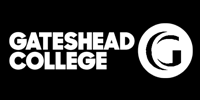Spotify: Fake It
An argument that has erupted across the industry over the last couple of weeks is Spotify’s apparent use of so-called ‘fake artists’- artists specifically commissioned by Spotify that have no footprint elsewhere, whose tracks appear on Spotify’s first party playlists. This led to allegations that Spotify were effectively trying to game their own royalty system by paying producers a flat fee to create tracks.
An investigation by Music Business Worldwide, who were in fact onto this last year identified over 50 such artists, many of which originated from Stockholm-based production music company Epidemic Sound.
So what is the big deal, man? Isn’t this just Spotify taking an inevitable dip into the waters of becoming content creators and owners? Isn’t it just their version of ‘Netflix Originals’? Or the equivalent of an artist using various pseudonyms to release music however they wish to, al la Aphex Twin? Not exactly- such content on Netflix is clearly labelled and marketed as exclusive content and an incentive to subscribe- Spotify on the other hand is accused of essentially creating ‘ghost’ artists to create tracks to avoid paying various labels and rights owners it has struck deals with- effectively watering down pints, and no-one likes that. This is ultimately very different to the not so strange case of ‘Robert Galbraith’ and JK Rowling.
Examples include ‘artists’ such as Deep Watch who appear on the ‘Ambient Chill’ playlist and Spotify’s ‘Sleep’ playlist featuring Enno Aare. Perhaps Spotify were hoping that the labels would sleep through this one?
The streaming giant has of course issued a strong denial to the allegations as reported by Billboard.
Of course this opens up some philosophical questions- if an artist creates a track and no one hears it but Spotify users, does it exist? Of course it does and The Gen would argue that it is the creator’s prerogative should they wish to take the fee and do so- it doesn’t make them ‘fake’ and the term itself is unhelpful.
The problem is Spotify’s seeming lack of transparency, which is arguably the most important word for the music industry in 2017. Doing direct deals in this way to pad out playlist is undoubtedly in Spotify’s economic self-interest and lets face it, its back is against the wall in that respect, with the platform losing $600m in 2016.
This is no way to build long term partnerships with rights holders, many of whom seem understandably enraged. It also raises other moral questions around Spotify– such artists are clearly fast tracked to first party playlists that many emerging artists would give their right arm to appear on, but instead they have to jump through numerous hoops to even get their tracks hosted on Spotify.
Address
Coronation House, 65 Quayside, Newcastle Upon Tyne, NE1 3DE
Telephone
07955289085
Connect with Generator
© Generator 2025 - All rights reserved.
Delivered with Cargo Creative




















